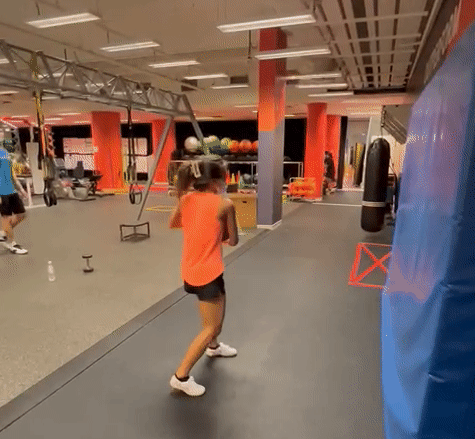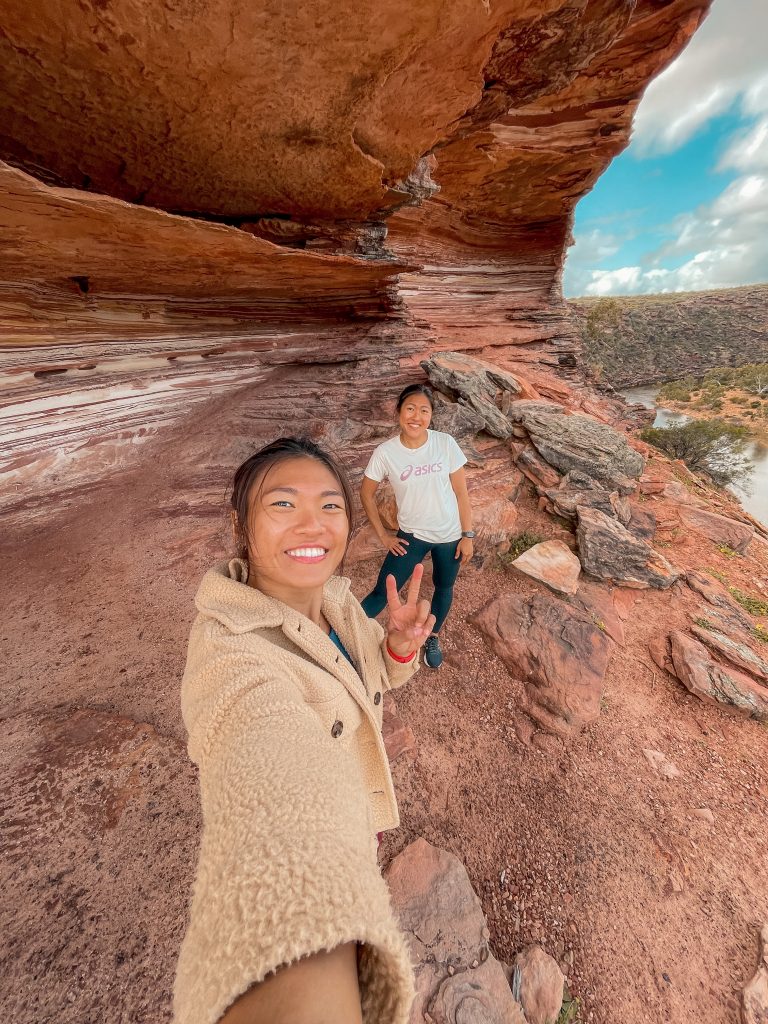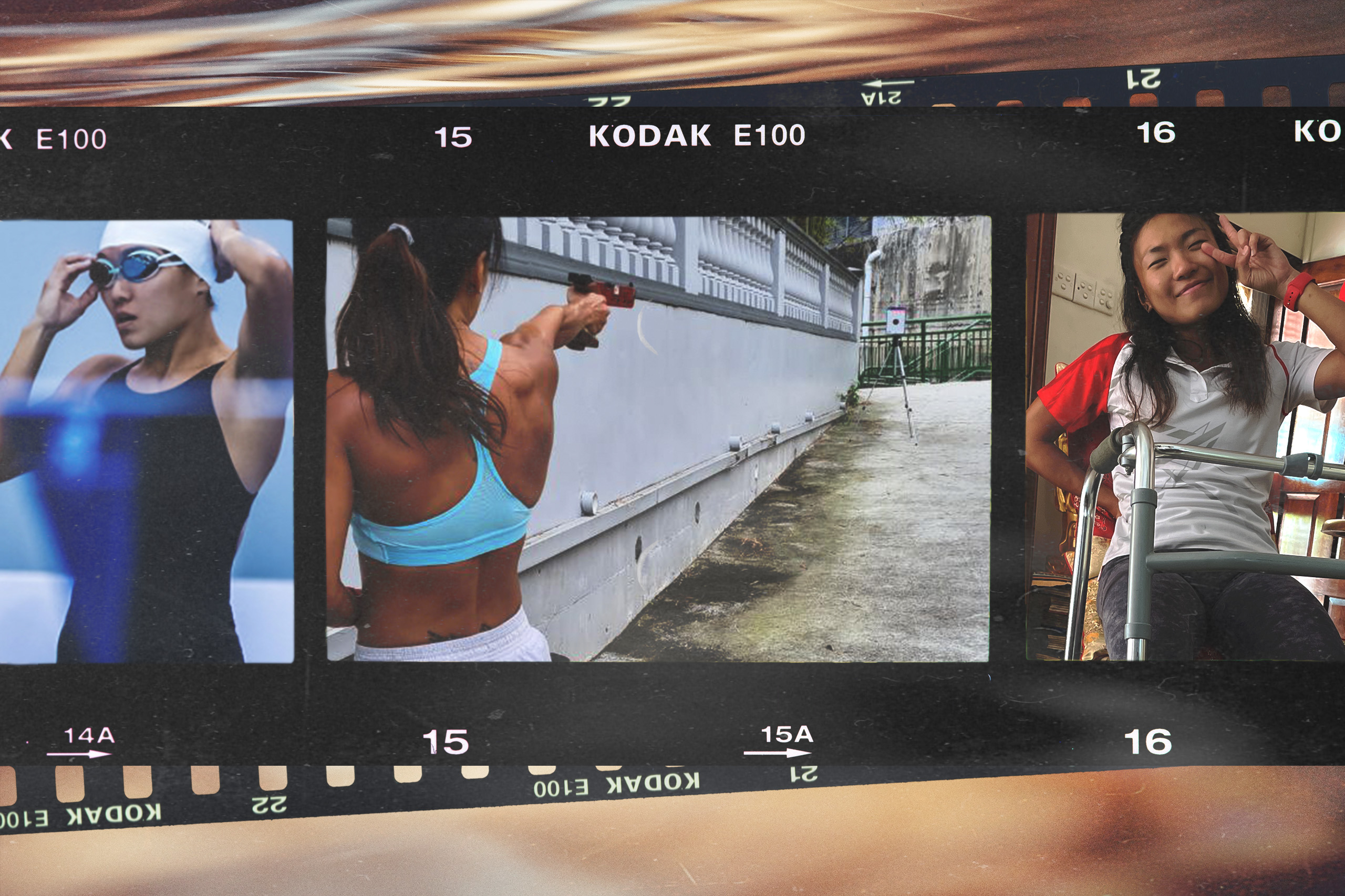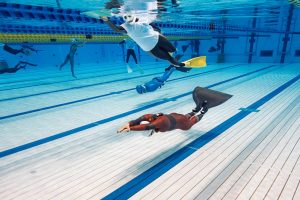All images courtesy of Shermaine Tung.
At 5 AM, like on any other day, Shermaine Tung awakes from her slumber. At this time, she usually goes for a run or a swim. Like the other early risers who jog past her, she has a day’s worth of work waiting for her. But her rigorous routine, all of it, is part of a unique calling. At least, until she’s back in bed by 11 PM.
Shermaine’s a pentathlete. Nope, that’s not someone who competes in the comfort of a penthouse (although, in one special instance, this wasn’t entirely inaccurate for her).
Shermaine regularly takes part in competitions–runs, aquathlons, triathlons, or modern pentathlons. The latter is where an athlete competes in an event that’s divided by different sports disciplines. It requires stamina usually reserved for a marathon—along with an athlete’s dexterity equivalent to a jack-of-all-trades.
In the last part of a pentathlon lies the laser run, which combines cross-country with laser pistol shooting. Shermaine excels in that, and in other sports. To put it mildly, she’s sporty.
“[Sports] make me a happier person in general lah,” Shermaine admits over a Zoom call. “I’m quite grumpy if I don’t get to exercise for a few days. So, whenever I get injured, if I’m out for, like, one week? Wow, I will get so grumpy.”
For someone like her, getting injured means losing out on opportunities. A bad leg could potentially take months to heal. Even worse, it may never reach 100 percent ever again.
“I can’t compete for the rest of my life,” she says. “I just try to inspire as many young athletes as I can.” While she’s still fit, she travels across the globe to compete professionally. She also uses her personal time to explore new terrain as a seasoned jogger. She’s constantly active, so it also means she can’t afford to be careless when she’s out and about.
This means Shermaine takes something like travel insurance seriously. In her field, where your physical abilities are your main skill set, she can’t take any serious risks.
“The money wouldn’t compensate for the months I will be out of training,” she admits. If instances in her life have taught her, safety is always a priority.
Five Sports, One Goal
One of the sports disciplines in a pentathlon is horse riding. (Or, at least, it used to.)
Last March, during training on local grounds, Shermaine fell off a horse. The doctors found a ruptured disc in her back that required surgery. Now, months after the incident, tingling sensations from that area still persist.
Yet, on our call, Shermaine is unabashedly chirpy. She lives by a simple philosophy: “No matter where you go, be receptive to learning new things.”
She strikes the tone of a Physical Education (PE) teacher who, instead of imposing the harsh regimen expected of them, nurtures a love of exercise with care and insight. Her enthusiasm for her career and fitness are all in one – she really just likes to live a healthy life.
Shermaine’s mother was her own PE teacher and coach in one. As kids, she would regularly bring Shermaine and her sister to the playground, and taught them swimming, badminton, and booked them tennis lessons.

“She made sure that I had equal opportunities to go out and play,” she says. Her mother felt sports was a great outlet to accrue not just fitness, but EQ skills.
The nature of athletic competition demands exceptional performance. It’s easy to lose yourself in an environment where the best of the best vies for the top.
Shermaine counts herself lucky that her relationship with physical fitness, while unshakably enthusiastic, is healthy. “Every athlete has to know their own body–what works for them, what doesn’t work for them, how much rest they need,” she says.
In 2019, Shermaine clinched her first SEA Games medal, coming in third for that year’s pentathlon event.
She got there by understanding her body first. “When somebody runs ahead fast, you must know your own capabilities very well first before you try to catch up: Can you hit that baseline? And if you can hit that, can you maintain your heart rate after the run?” she explains.
“You’re your own enemy for laser run. You cannot look at other people.”
Unlike most millennials, Shermaine doesn’t deal with imposter syndrome or persistent inadequacy against other athletes. On her own time, she spends it outdoors to fulfil a different purpose in her life.
“I don’t like to waste a day,” she says firmly. “Especially weekends. I always like to start my day early, because I have more time to do whatever I want to do.”
She finds “a lot of zen” in swimming. She saves her fun runs for mountainous trails overseas, but in unfamiliar territory, it’s not all fun and games.
“Running is when you’re the least guarded,” she states. “You have to be mentally prepared to either slow down or stop.”
She’s a “thrill-seeker”, she admits, but she chases thrills with caution. A thrill-peeper, maybe?
“I Don’t Seek Permission, I Only Notify…”
“I’m trying to qualify for the SEA Games in May next year, for the aquathlon,” she tells me. “I have…” She pauses to count the months ahead, “about half a year to get ready for it.”
In an aquathlon, there’s no shooting. Just a lot of running and swimming.
Her daily timetable—which, again, starts at 5 AM—makes room for training and work. Shermaine handles sports development for Sports Singapore’s CoachSG department, which shapes local coaches for Singapore’s burgeoning sports landscape.
As with any young athlete, she’s had her fair share of nurturing and harsh coaches during her early 20s.
Now, as she approaches her 30s, she gets to see things from the other side – how the craft of coaching is crucial to push athletes beyond their skills.
Sometimes, she works from home, which she shares with her parents and pets: Three dogs and two cats. Other times, she’s on the ground, covering meets, seminars, and mixers.
Shermaine is meticulous–her timetable explains it all–and draws from an inexplicable well of energy. Our call is slotted right in the afternoon, when she was able to find a sliver of time to talk.
She remains focused on her everyday life. If she isn’t spending time bringing her dogs out to the park, planning her next overseas adventure, or bingeing Korean dramas on Netflix, she’s on her A-game. Her seemingly rigorous work ethic is not without a rebellious streak, one that her mother knows all too well.
“My mum always says this about me: I don’t seek permission, I only notify her,” she laughs. “When my mind is set on something, I’ll only let her know when I’ve done it.” For instance, her mother only knew she got a tattoo when she saw it in person.
She’s learned not to push herself when she isn’t prepared. Of course, not by taking her mother’s advice, but by learning things the hard way.

First, it was her nights spent partying till 1 AM, even when she had important training the next morning.
Then, it was taking on daring treks overseas. 20-somethings don’t usually have the most time (or money) but Shermaine had plenty of energy and an appetite for risk.
A sunrise hike in a secluded Swiss mountain proved to be one of the scariest experiences Shermaine’s ever had: She remembers being flustered by the unmarked, dank trail that seemed to have no end in sight. Every step in the dark could have led to a serious fall.
“It was three hours of scrambling. Not even climbing!”
The screeching animal noises she heard resounded like a warning for her and her partner to flee. She retreated, like a true thrill-peeper. Later on, she recounted her experiences to her mother–who reminded her to be extra careful doing such treks.
Her mother only said: “I told you so.”
Precautions with a Cause
At the end of 2018, after a break from professional athleticism, Shermaine returned to be a pentathlete.
Though she is not yet 30, she’s not the same 21-year-old who could go for a jog hours after partying at Zouk. She now juggles a full-time office job with full-time athletic ambitions–her own act of rebellion against the threat of adulthood monotony.
That still comes with being responsible. “My mum used to be an insurance agent last time,” she says. Like any good insurance agent, or mother at that, she always stresses “the importance of having travel insurance” as a sports professional constantly on the move.
“Like when you fall down how? If you need to see a doctor how? You just want to go enjoy yourself!” she says. “You just want to run or climb happily.”
Insurance is easy to buy these days, and it comes with many benefits–affordable premiums, access via user-friendly apps with instant coverage for overseas medical expenses, lost/stolen baggage or COVID-related incidents. Platforms like Grab have made buying insurance like this (for example, Travel Cover) painless, simple and highly affordable (from as low as $3.90/day).
It’s coverage for what might happen. The rest is left up to her to figure out how to be the most active while staying safe.
While her horse-riding incident happened locally, she recounts a skiing holiday with her family when she was 13. She rode a chairlift to get up to the mountain’s peak when it stopped abruptly.
The physical impact of the electric fault was strong enough for her to fall onto a bed of snow right underneath. She came out of it largely unscathed: “I was inches away from a massive drop where there were pine trees.”
Her injuries these days come from “overtraining,” she mentions, almost offhandedly. So, she just tries her best to not let that happen–especially when she’s less than a year away from, arguably, the most important competition of her career yet.
She ensures plenty of nutrition, rest, and time out when things feel too overwhelming. The body can hit all the optimum checkmarks for a physically fit athlete, but the mind must measure up the same.
“You must have awareness of your own physical safety, as well as the psychological part of it,” she explains. She doesn’t “work overtime”. Stress from impending competitions is normal for her–she just tries not to let it get to her head by having enough downtime with her pets and, of course, some Netflix.
Shermaine feels happier when she’s active–“it makes me a happier person in general,” she highlights– but taking physical risks can be “stressful”, she admits, even if the payoff feels worth it. At the end of the day, she doesn’t run for that endorphin hit; she runs for glory. That extra distance requires preparation and protection.
The Finish Line
Towards the end of the conversation, Shermaine refers to the act of “destressing” as finding her zen: a state of being where everything locks into place, where she feels the most control over her mind.
Could she have been someone to find her zen if she wasn’t doing sports? She recoils at that question: “That sounds like a nightmare to me! I don’t even know if I can survive a life without sports.”
Sports is her life. Not her whole life, of course–there are her pets, her partner, her favourite Korean dramas, and her seemingly endless list of places to travel and visit–but she wants to be active as long as she’s breathing.
Impatience and stubbornness were once qualities of her as a free-spirited young adult. Now, it radiates around her as a professional who tests her own boundaries. As long as there’s enough protection, of course–proper equipment, the right insurance plans, etc.
Without her dedication to enjoy a long life and making sure her safety is always ensured, those qualities could cause her to burn out and fade away.
When asked about what her future will look like, she pauses before answering with a shrug: “I’m just ready to take on whatever comes my way.”






